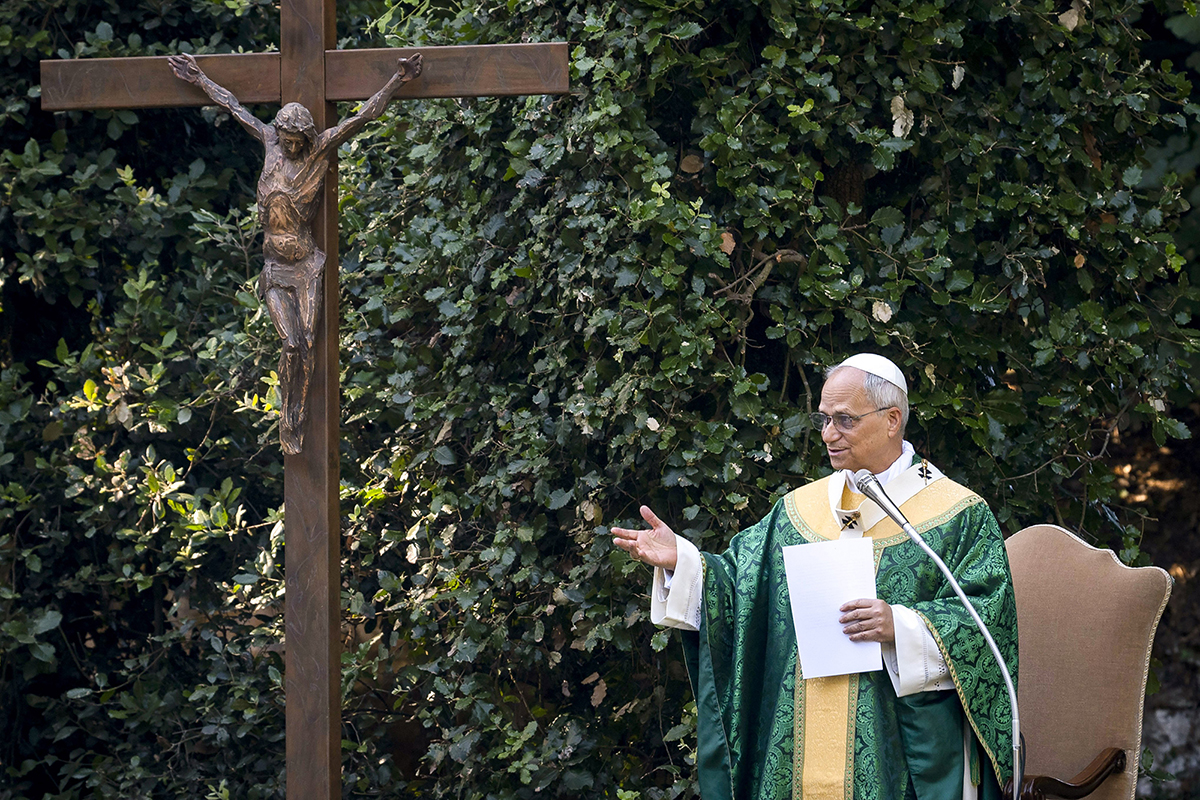SERVE THE LORD WITH GLADNESS | Jesus is our example of embodying the Father’s reconciling love
Readings this week prompt reflection on how we treat those we consider to be enemies
D

ear brothers and sisters in Christ,
We hear some of the “we” passages from the Acts of the Apostles this week. Typically, the Acts of the Apostles describes what “they” did — mainly Peter and Paul. But in a few instances it talks about what “we” did. Perhaps the author joined Paul on some of his journeys?
I’ll leave that question to the biblical scholars! But pondering the shift from “they” to “we” makes me think of something that doesn’t require a biblical scholar to sort out. How do we treat those we consider to be our enemies — whether personal, cultural or political? Do we treat them as “they” or as “we?”
Think of how God treated humanity when we conducted ourselves as enemies of God. The Father sent His Son to reconcile us, to bring us back, because from God’s perspective, we never stopped being “His people.” In a beautiful passage at the start of the book of the Prophet Isaiah, God says: “Come now, let us set things right, says the LORD. Though your sins be like scarlet, they may become white as snow; though they be crimson red, they may become white as wool” (Isaiah 1:18). Notice the use of “us” language in the midst of naming our sinfulness. This is a revelation of the character of God. He doesn’t treat us as enemies even when we conduct ourselves like enemies.
Think of how Jesus treated humanity when we were lost in sin. He took on our flesh. He paid the price for our sins on the Cross. He offered to make us one flesh with Him in the Eucharist. He sent the Holy Spirit so we could share His nature. It doesn’t make any sense from the perspective of fallen humanity — that’s not how we treat those who oppose us! But it makes perfect sense from a divine perspective. This is how the Father acts, and Jesus is the eternal image of the Father’s love. Therefore, when He comes in the flesh, Jesus perfectly embodies the Father’s reconciling love.
Think of St. Damien de Veuster who served the leper colony of Moloka’i, and whose feast day we celebrate this week (May 10). The leper colony was a physical threat to his health and life. But, like Jesus, that didn’t stop him from entering into their life, treating the leper colony as “us” rather than “them.”
That’s the God in whose image and likeness we’re made. That’s the Jesus who calls us to follow Him. That’s a saint who shows us the way. Looking around at how we treat our enemies today, we’re not doing a very good job living up to our nature and following our call!
Does that means we’re supposed to pretend everything is OK when people oppose us or, more importantly, oppose the Gospel and the teachings of the Church? Of course not! What we’re supposed to do is harder and costs more. We’re supposed to love them, to be willing to pay the price for their sins in our lives — to treat others the way God has treated us.
“What if they don’t repent?” God’s love for us does not depend on our repentance. The offer comes first; our decision comes after. The question is, can we imitate that love toward those who conduct themselves as our enemies?
Fallen humanity struggles to imitate God’s love. But we were made for it, and we’re called to it. As we begin to prepare for Pentecost, let’s pray for this gift, and open ourselves to receive it.





